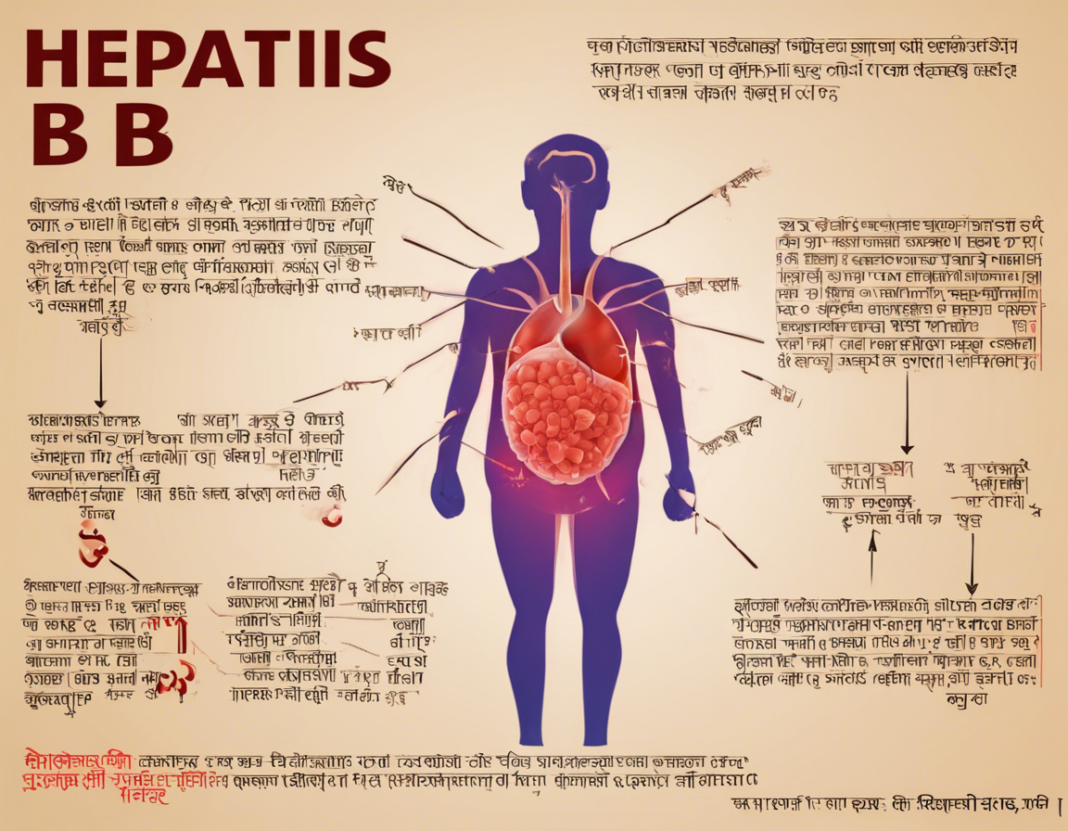Introduction
Hepatitis B is a viral infection that attacks the liver, causing both acute and chronic disease. The virus is most commonly transmitted from mother to child during birth and through contact with blood or other body fluids. In India, hepatitis B is a significant public health concern with approximately 45 million people chronically infected, according to the World Health Organization (WHO). In this guide, we will explore Hepatitis B in detail, including its causes, symptoms, diagnosis, treatment, and prevention.
What is Hepatitis B?
Hepatitis B is caused by the hepatitis B virus (HBV), which is highly contagious and can be transmitted through contact with the blood or other body fluids of an infected person. The virus can survive outside the body for at least 7 days and remains capable of causing infection.
Causes of Hepatitis B
The primary modes of transmission for hepatitis B include:
– Unprotected sexual contact with an infected person
– Sharing needles or syringes with an infected person
– Mother to child transmission during childbirth
– Contact with blood or open sores of an infected person
Symptoms of Hepatitis B
The symptoms of hepatitis B can vary from mild to severe and may include:
– Fatigue
– Abdominal pain
– Loss of appetite
– Nausea and vomiting
– Joint pain
– Dark urine
– Jaundice (yellowing of the skin and eyes)
Diagnosis of Hepatitis B
Hepatitis B is diagnosed through blood tests that detect the presence of the virus and the body’s immune response to the infection. These tests may include HBsAg, anti-HBs, HBeAg, anti-HBe, and anti-HBc.
Treatment for Hepatitis B
Treatment for acute hepatitis B focuses on relieving symptoms, while treatment for chronic hepatitis B aims to reduce the risk of liver damage and complications. Antiviral medications are commonly used to control the virus and prevent liver damage.
Prevention of Hepatitis B
The most effective way to prevent hepatitis B is through vaccination. The hepatitis B vaccine is safe, effective, and available for people of all ages. Other preventive measures include practicing safe sex, avoiding sharing needles, and ensuring proper sterilization of medical equipment.
Frequently Asked Questions (FAQs)
- Can hepatitis B be cured?
-
While there is no cure for hepatitis B, antiviral medications can help control the virus and prevent complications.
-
Is hepatitis B contagious?
-
Yes, hepatitis B is highly contagious and can be transmitted through contact with infected blood or body fluids.
-
Who should get the hepatitis B vaccine?
-
The hepatitis B vaccine is recommended for all infants, older children and adolescents who were not vaccinated as infants, and adults at risk of infection.
-
Can hepatitis B spread through food or water?
-
Hepatitis B is not transmitted through food or water. It is primarily spread through contact with infected blood or body fluids.
-
Is it safe to breastfeed if the mother has hepatitis B?
- Yes, it is safe for a mother with hepatitis B to breastfeed her baby as long as the baby receives the hepatitis B vaccine and hepatitis B immunoglobulin (HBIG) within 12 hours of birth.
In conclusion, hepatitis B is a serious viral infection that can lead to liver damage if left untreated. However, with early diagnosis, appropriate medical care, and preventive measures such as vaccination, the risk of complications can be significantly reduced. It is essential to raise awareness about hepatitis B, promote vaccination, and encourage routine testing to combat the spread of this disease.
